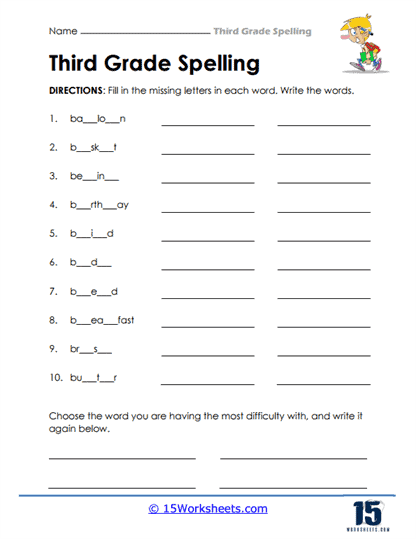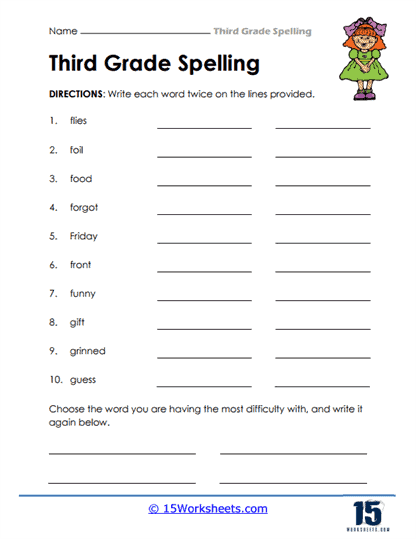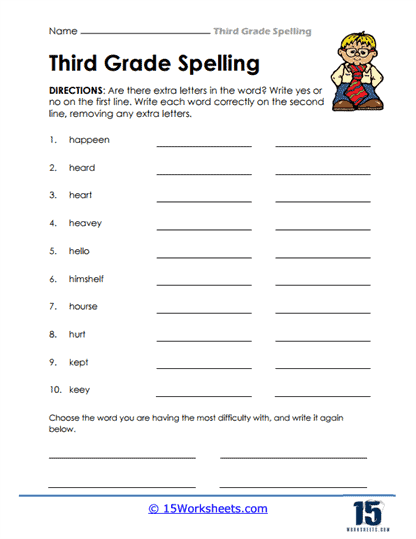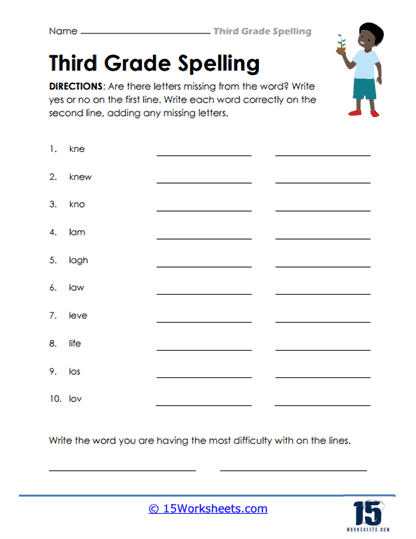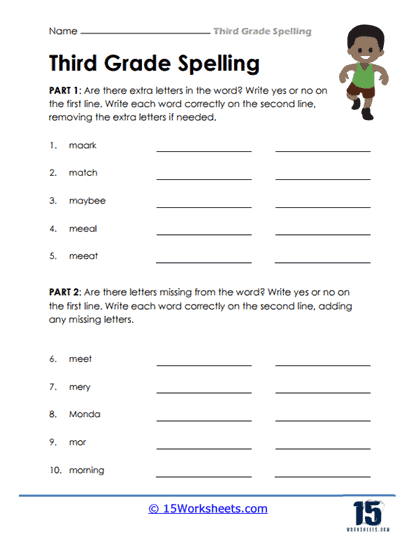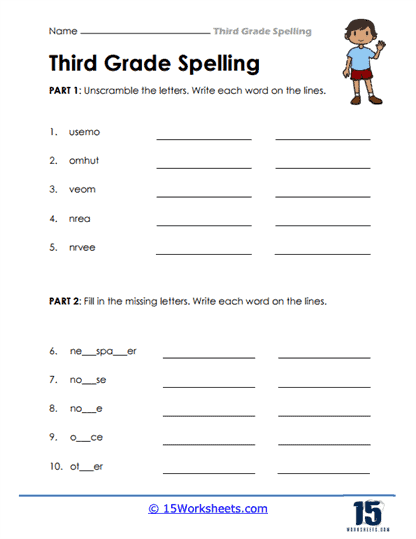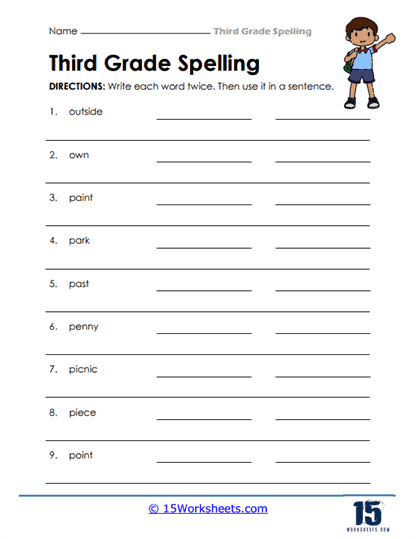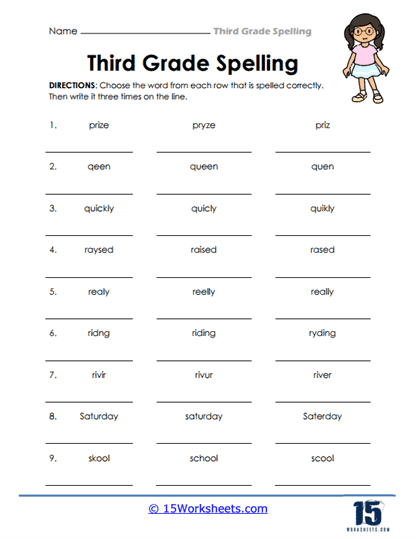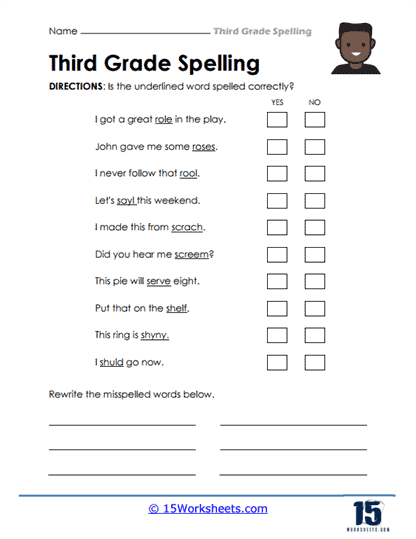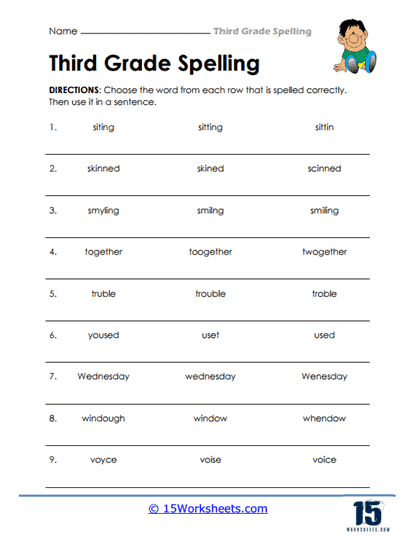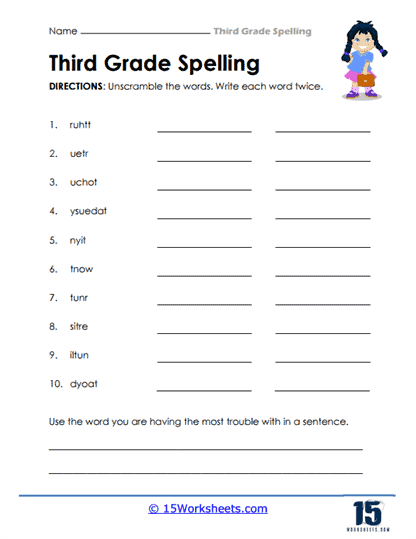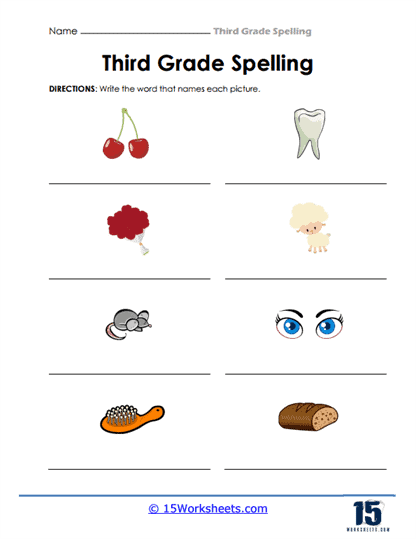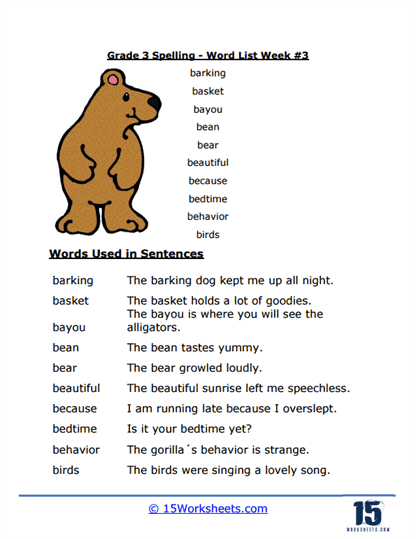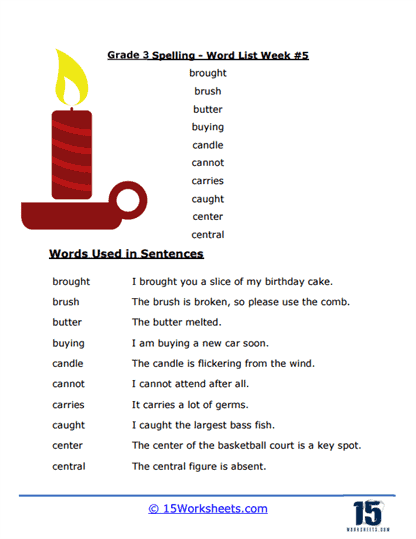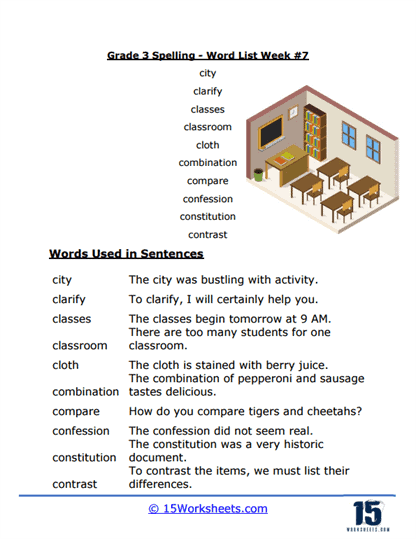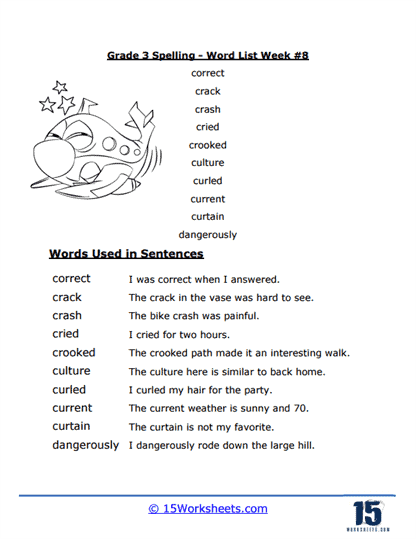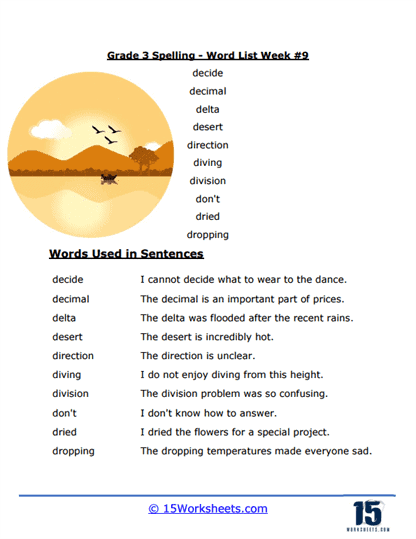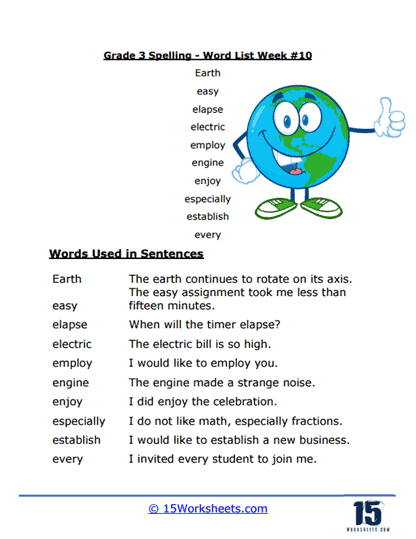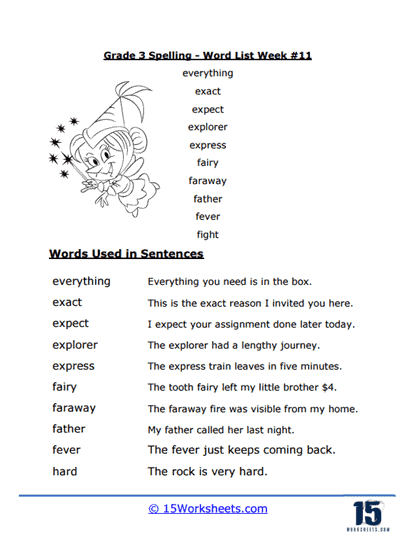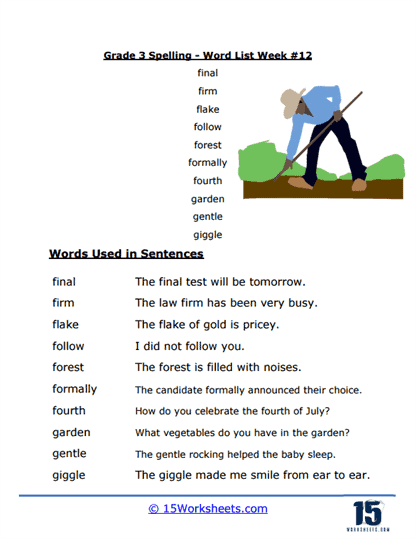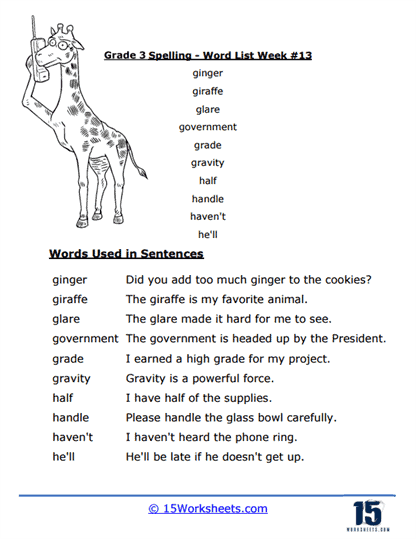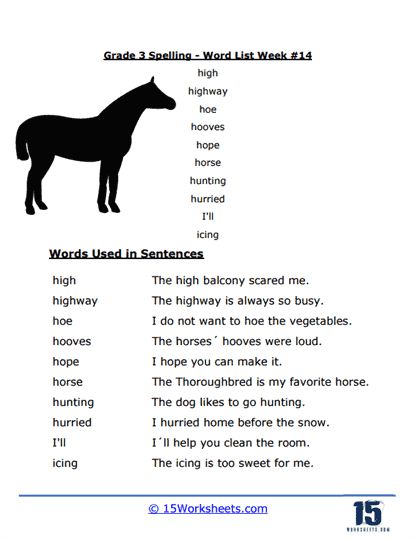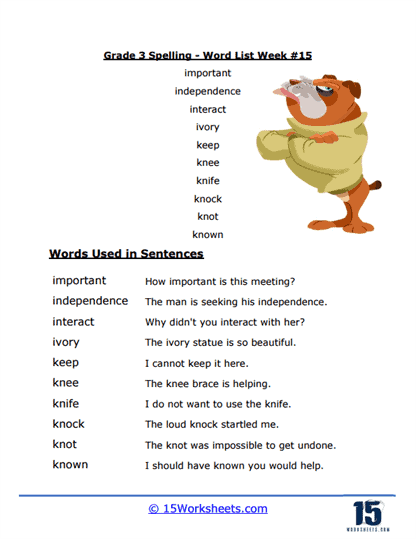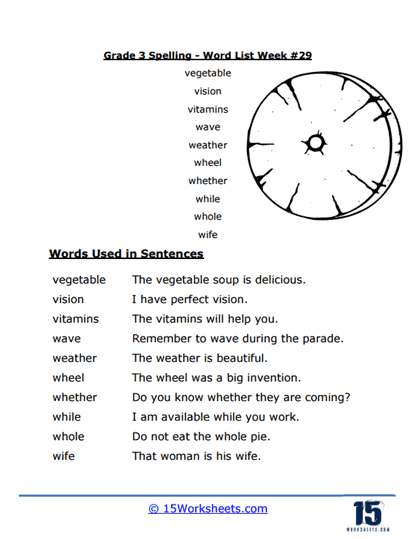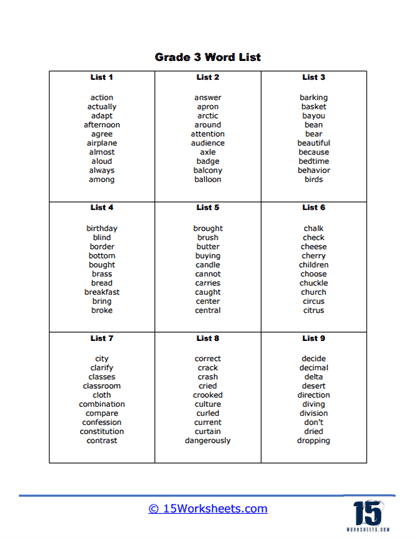3rd Grade Spelling Words Worksheets
All About These 3rd Grade Spelling Words Worksheets
This series of worksheets on 3rd grade spelling words is a comprehensive and effective set of materials designed to help young students improve their spelling skills. The worksheets are designed to be engaging and challenging, with a variety of activities that help children practice spelling in different ways.
Each worksheet is designed to be visually appealing, with colorful graphics and fun illustrations that capture children’s attention and make learning more enjoyable. The worksheets are also designed to be easy to use, with clear instructions and simple exercises that are appropriate for 3rd graders.
Overall, this series of spelling worksheets for 3rd graders is an excellent resource for young students who are looking to improve their spelling skills. With engaging activities, clear instructions, and ample practice opportunities, these materials are sure to help children become more confident and competent spellers.
Using Weekly Spelling Lists
Using weekly spelling words with students is a common practice aimed at improving their spelling skills and expanding their vocabulary. To begin, it’s crucial to determine the appropriate grade or skill level for your students to ensure that the selected words are challenging but not overly difficult. Once the level is determined, create a list of spelling words for the week, drawing from textbooks, literature, or thematic units as per your curriculum. Organize these words by difficulty, patterns, or themes to provide structure to the learning process. Typically, a manageable number of words, around 10-20, is selected, depending on the grade level and students’ abilities.
Provide students with a copy of the spelling word list at the beginning of the week through printed lists, digital documents, or interactive platforms. Encourage students to employ various study techniques such as writing the words multiple times, creating flashcards, practicing out loud, or using mnemonic devices. Set aside time each day for students to practice their spelling words, either as a whole-class activity or independently. Activities like dictation, spelling games, quizzes, and peer practice can be incorporated to keep the learning engaging. Continuously review previously learned words to ensure retention and encourage students to use these words in sentences or short paragraphs for context.
Conduct a weekly spelling test, typically on the last day of the week or a convenient time in your class schedule, to assess students’ progress and provide feedback. Celebrate their achievements, such as improved spelling and vocabulary usage. Additionally, remain adaptable to individual learning styles and needs, making adjustments to your approach as necessary to cater to the diverse abilities of your students. By consistently following these steps and maintaining a structured approach, you can effectively help your students enhance their spelling skills and overall language proficiency.
Crafting an Effective and Engaging 3rd Grade Spelling Program
Developing strong spelling skills is essential for students’ overall literacy development, as it directly impacts their reading, writing, and communication abilities. As children progress to the third grade, they encounter more complex words and spelling patterns.
To design an effective spelling program, it is crucial to recognize the developmental milestones of third-grade students. Typically aged between 8 and 9 years old, they have already acquired foundational spelling skills and are ready for more advanced challenges. Key aspects of third graders’ spelling development include:
- Expanding Vocabulary: Third graders continue to build their vocabulary, learning new words and their spellings through reading and instruction.
- Growing Awareness of Spelling Patterns: They develop a deeper understanding of common spelling patterns, such as prefixes, suffixes, and homophones.
- Mastering Sight Words: Students become proficient in recognizing and spelling a larger repertoire of high-frequency words without needing to sound them out.
- Grasping Spelling Rules: They continue to learn and apply spelling rules that govern the English language.
Teaching spelling to 3rd graders can be challenging, but with the right approach, teachers can make the learning process more effective and enjoyable for their students. Here are some useful tips on how to teach spelling to 3rd graders:
- Use a variety of teaching strategies: Use a variety of teaching strategies to engage different learning styles. For example, use visuals for visual learners, hands-on activities for kinesthetic learners, and auditory cues for auditory learners.
- Use games and activities: Spelling games and activities can make learning fun and engaging for 3rd graders. Use activities such as word searches, crossword puzzles, and word scrambles to reinforce spelling skills.
- Use word families: Teach students about word families, which are groups of words that share a similar spelling pattern. This can help them recognize spelling patterns and improve their spelling skills.
- Teach phonics: Teach students phonics, which is the relationship between sounds and letters. This can help them decode new words and improve their spelling.
- Use mnemonics: Mnemonics are memory aids that can help students remember spelling rules and patterns. For example, the mnemonic “i before e, except after c” can help students remember the spelling of words like “believe” and “receive.”
- Provide frequent practice opportunities: Practice is essential for learning spelling, so provide students with frequent opportunities to practice spelling words in different ways, such as writing, spelling aloud, and playing word games.
- Encourage proofreading: Encourage students to proofread their writing to identify and correct spelling errors. This can help them develop good spelling habits and improve their writing skills.
By using these strategies, teachers can help their 3rd grade students improve their spelling skills and become more confident writers.


